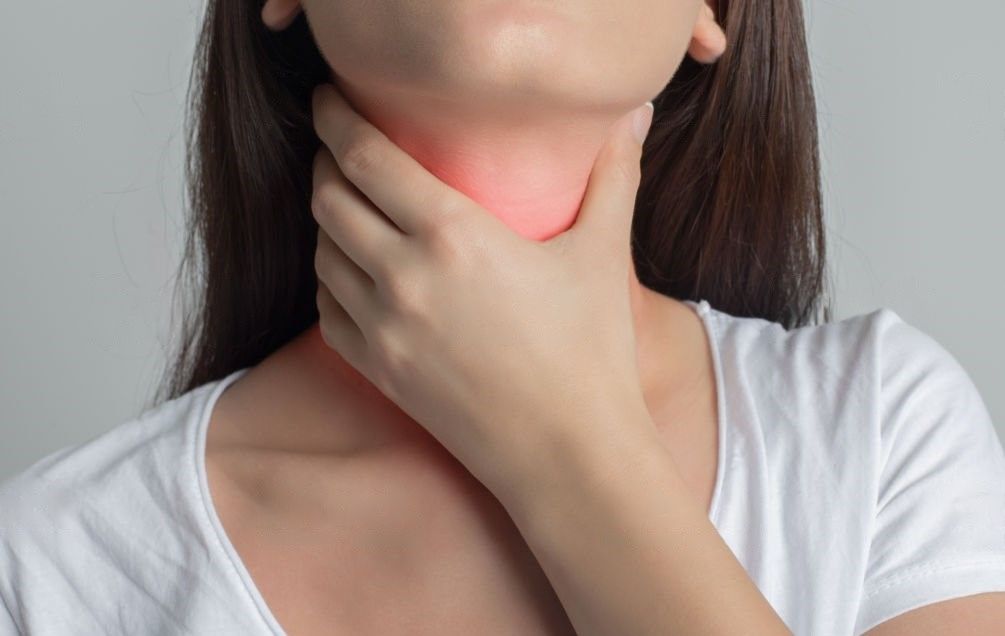Hypothyroidism: Signs, Symptoms, and Diagnosis
The importance of early detection in averting potential health consequences linked with hypothyroidism cannot be overstated.

Hypothyroidism, a prevalent endocrine disorder, is characterized by insufficient thyroid hormone production by the thyroid gland. The importance of recognizing this condition cannot be overstated, as untreated hypothyroidism can lead to various health complications. This blog aims to shed light on the signs, symptoms, and diagnosis of hypothyroidism, providing a comprehensive understanding of this health condition.
Signs and Symptoms
Hypothyroidism often starts subtly, with symptoms easily mistaken for other conditions or ignored as normal aging signs. Here are some key symptoms backed by scientific reasoning:
1. Fatigue and Sluggishness
The thyroid hormone plays a vital role in maintaining energy levels. When these hormone levels drop, you may feel tired, sluggish, or depressed.
2. Unexplained Weight Gain
Thyroid hormones are essential for metabolism regulation. With a hypoactive thyroid, your metabolism slows down, leading to weight gain despite not changing your eating habits.
3. Sensitivity to Cold
Thyroid hormones help regulate body temperature by stimulating heat production. Hypothyroidism can cause you to feel cold when others don't due to reduced metabolism and heat production.
4. Muscle Weakness and Joint Pain
Low thyroid hormone levels can lead to muscle weakness and joint or muscle pain. These hormones are involved in muscle growth and repair, so a deficiency can cause these symptoms.
5. Constipation
Thyroid hormones influence gut motility. Thus, a deficiency can slow down digestive processes, leading to constipation.
6. Dry Skin and Hair Loss
Skin and hair follicles have receptors for thyroid hormones, which help in their growth and repair. A deficiency can result in dry skin and hair loss.
Diagnosis
Diagnosis of hypothyroidism involves a thorough physical exam, medical history, and specific tests:
1. TSH (Thyroid Stimulating Hormone) Test
This is the most sensitive test for hypothyroidism. High TSH levels indicate the pituitary gland is working harder to stimulate the thyroid, suggesting hypothyroidism.
2. T4 (Thyroxine) Test
A low level of T4 usually indicates hypothyroidism, as T4 is the main hormone produced by the thyroid gland.
SUMMARY
Understanding hypothyroidism – its signs, symptoms, and diagnosis – is a critical step in ensuring timely medical intervention and treatment. The subtle onset of this condition underscores the importance of being aware of the changes in one's body. If you find yourself identifying with these symptoms, it is recommended to seek professional medical advice promptly. Remember, early detection is key to preventing potential health complications associated with hypothyroidism.
Jayti Shah is a Clinical Nutritionist with a master's degree in Clinical Nutrition and Dietetics. She is a member of the Indian Dietetic Association (IDA). Over the last 9 years, she has helped 400 clients in their clinical and weight loss journeys. She works with SocialBoat as a nutrition consultant.
At SocialBoat, we offer custom diet plans and guided workouts to help you achieve your goals in a 360-degree approach. Our gamified experience ensures that you don’t find workouts boring and we reward you for being consistent with your efforts.

REFERENCES
- Parija, S. C., & Bhandari, B. (2017). Textbook of Medical Biochemistry. JP Medical Ltd. [Book]
- Mullur, R., Liu, Y. Y., & Brent, G. A. (2014). Thyroid hormone regulation of metabolism. Physiological reviews, 94(2), 355-382. https://www.physiology.org/doi/full/10.1152/physrev.00030.2013
- Silva, J. E. (2006). Thermogenic mechanisms and their hormonal regulation. Physiological reviews, 86(2), 435-464. https://www.physiology.org/doi/full/10.1152/physrev.00009.2005
- Sinha, R. A., Singh, B. K., & Yen, P. M. (2018). Direct effects of thyroid hormones on hepatic lipid metabolism. Nature reviews. Endocrinology, 14(5), 259–269. https://www.ncbi.nlm.nih.gov/pmc/articles/PMC5893378/
- Yoon, S. L., Grundmann, O., Koepp, L., & Farrell, L. (2014). Management of chronic constipation in adults. The United States Pharmacist, 39(5), 12-21. https://www.uspharmacist.com/article/management-of-chronic-constipation-in-adults
- Spencer, C. A., Hollowell, J. G., Kazarosyan, M., & Braverman, L. E. (2007). National Health and Nutrition Examination Survey III thyroid-stimulating hormone (TSH)-thyroperoxidase antibody relationships demonstrate that TSH upper reference limits may be skewed by occult thyroid dysfunction. The Journal of Clinical Endocrinology & Metabolism, 92(11), 4236-4240. https://academic.oup.com/jcem/article/92/11/4236/2598681
